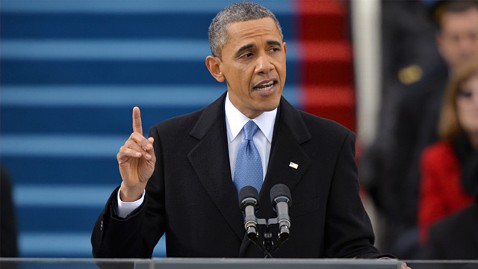Smoke like a man, die like a man.
U.S. women who smoke today have a much greater risk of dying from lung cancer than they did decades ago, partly because they are starting younger and smoking more — that is, they are lighting up like men, new research shows.
Women also have caught up with men in their risk of dying from smoking-related illnesses. Lung cancer risk leveled off in the 1980s for men but is still rising for women.
"It's a massive failure in prevention," said one study leader, Dr. Michael Thun of the American Cancer Society. And it's likely to repeat itself in places like China and Indonesia where smoking is growing, he said. About 1.3 billion people worldwide smoke.
The research is in Thursday's New England Journal of Medicine. It is one of the most comprehensive looks ever at long-term trends in the effects of smoking and includes the first generation of U.S. women who started early in life and continued for decades, long enough for health effects to show up.
The U.S. has more than 35 million smokers — about 20 percent of men and 18 percent of women. The percentage of people who smoke is far lower than it used to be; rates peaked around 1960 in men and two decades later in women.
Researchers wanted to know if smoking is still as deadly as it was in the 1980s, given that cigarettes have changed (less tar), many smokers have quit, and treatments for many smoking-related diseases have improved.
They also wanted to know more about smoking and women. The famous surgeon general's report in 1964 said smoking could cause lung cancer in men, but evidence was lacking in women at the time since relatively few of them had smoked long enough.
One study, led by Dr. Prabhat Jha of the Center for Global Health Research in Toronto, looked at about 217,000 Americans in federal health surveys between 1997 and 2004.
A second study, led by Thun, tracked smoking-related deaths through three periods — 1959-65, 1982-88 and 2000-10 — using seven large population health surveys covering more than 2.2 million people.
Among the findings:
— The risk of dying of lung cancer was more than 25 times higher for female smokers in recent years than for women who never smoked. In the 1960s, it was only three times higher. One reason: After World War II, women started taking up the habit at a younger age and began smoking more.
—A person who never smoked was about twice as likely as a current smoker to live to age 80. For women, the chances of surviving that long were 70 percent for those who never smoked and 38 percent for smokers. In men, the numbers were 61 percent and 26 percent.
—Smokers in the U.S. are three times more likely to die between ages 25 and 79 than non-smokers are. About 60 percent of those deaths are attributable to smoking.
—Women are far less likely to quit smoking than men are. Among people 65 to 69, the ratio of former to current smokers is 4-to-1 for men and 2-to-1 for women.
—Smoking shaves more than 10 years off the average life span, but quitting at any age buys time. Quitting by age 40 avoids nearly all the excess risk of death from smoking. Men and women who quit when they were 25 to 34 years old gained 10 years; stopping at ages 35 to 44 gained 9 years; at ages 45 to 54, six years; at ages 55 to 64, four years.
—The risk of dying from other lung diseases such as emphysema and chronic bronchitis is rising in men and women, and the rise in men is a surprise because their lung cancer risk leveled off in 1980s.
Changes in cigarettes since the 1960s are a "plausible explanation" for the rise in non-cancer lung deaths, researchers write. Most smokers switched to cigarettes that were lower in tar and nicotine as measured by tests with machines, "but smokers inhaled more deeply to get the nicotine they were used to," Thun said. Deeper inhalation is consistent with the kind of lung damage seen in the illnesses that are rising, he said.
Scientists have made scant progress against lung cancer compared with other forms of the disease, and it remains the leading cause of cancer deaths worldwide. More than 160,000 people die of it in the U.S. each year.
The federal government, the Canadian Institutes of Health Research, the Bill and Melinda Gates Foundation, the cancer society and several universities paid for the new studies. Thun testified against tobacco companies in class-action lawsuits challenging the supposed benefits of cigarettes with reduced tar and nicotine, but he donated his payment to the cancer society.
Smoking needs more attention as a health hazard, Dr. Steven A. Schroeder of the University of California, San Francisco, wrote in a commentary in the journal.
"More women die of lung cancer than of breast cancer. But there is no 'race for the cure' for lung cancer, no brown ribbon" or high-profile advocacy groups for lung cancer, he wrote.
Kathy DeJoseph, 62, of suburban Atlanta, finally quit smoking after 40 years — to qualify for lung cancer surgery last year.
"I tried everything that came along, I just never could do it," even while having chemotherapy, she said.
It's a powerful addiction, she said: "I still every day have to resist wanting to go buy a pack."
___
Online:
American Cancer Society: http://www.cancer.org
National Cancer Institute: http://www.cancer.gov/cancertopics/tobacco/smoking and http://www.cancer.gov/cancertopics/types/lung
Medical journal: http://www.nejm.org
___
Marilynn Marchione can be followed at http://twitter.com/MMarchioneAP










